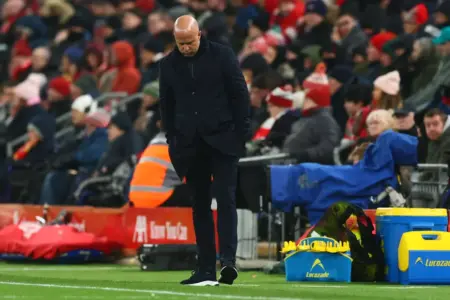The Premier League’s Financial Rules Face a Delay
In a significant development for the English Premier League, the controversial Profit and Sustainability Rules (PSR) system, which has been a source of significant discontent among several clubs, has been given a one-year reprieve. At a pivotal shareholders meeting held in central London, the 20 clubs agreed to keep the existing financial regulations in place for at least one more season. This decision comes after intense criticism from clubs such as Manchester United, Aston Villa, and Newcastle United, who have voiced their inability to sign key players under the current limits of £105 million losses over a three-year period. The move was also supported by Everton and Nottingham Forest, who faced points deductions last season due to overspending.
The Call for Reform
The push for reform has been a recurring theme, with club owners and executives expressing their frustration over the current financial regulations. Nassef Sawiris, the owner of Aston Villa, has been particularly vocal, asserting that the rules "do not make sense and are not good for football." Manchester United, in a letter to fan groups, revealed that they are at risk of failing to comply with PSR and may need to raise ticket prices to mitigate their "significant losses." The issues surrounding the PSR have highlighted the financial strain on clubs, particularly those looking to compete at the highest levels of European football.
The Delay and Its Implications
The delay in introducing the new system, which was initially set to take effect in June, stems from a variety of unresolved issues. These include a legal dispute with Manchester City over Assignment Premium Tax (APT) and the pending introduction of a regulatory body. Additionally, the Professional Footballers’ Association (PFA) has raised concerns about a potential "hard cap" on spending under the new rules. As a result, the new Squad Cost Rules (SCR) and Top to Bottom Anchoring Rules (TBA) will operate in a "shadow" form for the upcoming season, meaning they will not be enforceable.
The New Financial Model
The proposed new financial model, which is expected to be fully implemented in the following season, aims to introduce more flexible spending limits. Under the new system, clubs will be permitted to spend up to 85% of their total revenues on squad costs, a marginally less restrictive approach compared to Uefa’s regulations. This adjustment is designed to provide clubs with greater financial flexibility while still ensuring sustainable spending practices. The introduction of these rules in shadow form will allow clubs and the league to monitor their effectiveness and make necessary adjustments before they become binding.
Technological Advancements and Offside Decisions
While financial regulations dominated the discussion, the meeting also addressed the long-awaited introduction of semi-automated offside technology in the Premier League. Executives agreed to proceed with the implementation of this technology, contingent on the successful trial during the FA Cup fifth round. The use of semi-automated offside technology is expected to enhance the accuracy and speed of offside decisions, reducing controversies and ensuring fair play.
Looking Ahead
The decision to delay the implementation of the new financial rules reflects the complex nature of football governance and the need for careful planning and consensus among stakeholders. As the Premier League continues to navigate these challenges, the focus will be on ensuring that the new system strikes a balance between financial sustainability and competitive fairness. The coming season will serve as a crucial testing ground for the shadow rules, with all eyes on how clubs adapt and the league evolves.











